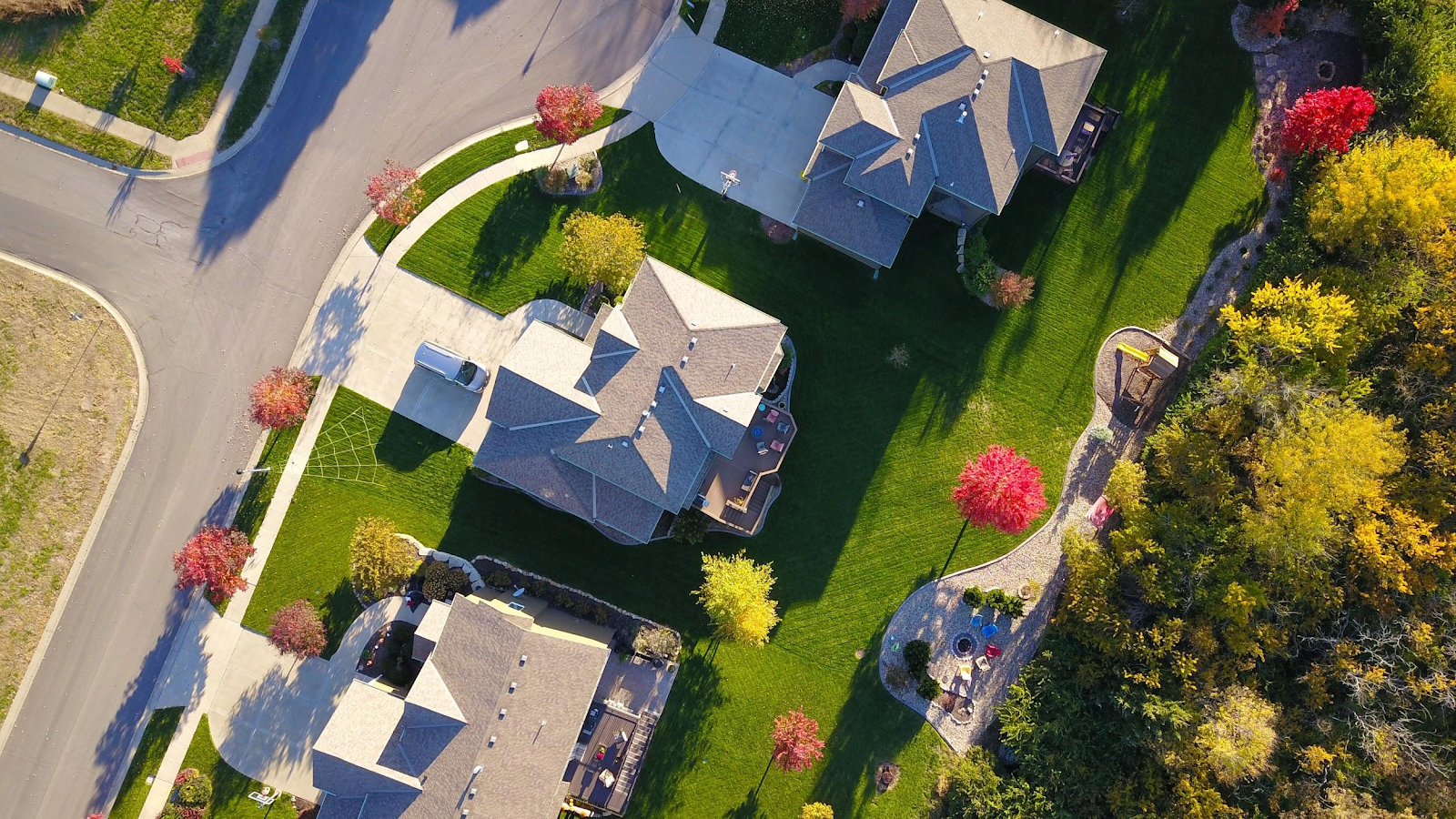Buying that first rental property is a giant step and an incredible feat for any investor looking to generate a reliable passive income from a real asset.
Thank you for reading this post, don't forget to subscribe!With the real estate sector continuing to grow exponentially all over the country, investing in a rental property as a first-time investor is becoming a more common path for achieving financial freedom — but don’t be fooled into thinking that it’s going to be smooth sailing all the way through!
If you’re looking to invest in your first rental property, you’ll need to get familiar with the ins and outs of how to manage a property as a landlord, how to calculate your net profits after taxes and expenses, and how to turn this first investment into positive cash flow for years to come.
In this article, we'll analyze all the steps involved in the process of purchasing your very first investment property, go through the challenges you're likely to face along the way, and hopefully give you the very last push you need before starting your real estate investment journey!
How Do I Buy My First Rental Property?
The first step to investing in your first rental home is to thoroughly assess your financial situation and identify how much you’ll be able to put down for financing your purchase.
This includes identifying the maximum down payment you can offer, what house price you can safely afford when taking out a mortgage, what outstanding debts you might be dealing with, and how you’re planning to not only repay your mortgage but also make a good profit from your home.
Of course, this might all sound like a no-brainer to many new investors, but it is worth stressing that even in an industry as resilient and low-risk as real estate investing, buying a property to rent out is still considered a riskier move than investing in stocks or REITs.
That’s why investors looking to make a reliable profit from their property should dive into the home buying process only after crunching the numbers and having a considerable financial cushion to fall back on if things end up not going as planned.
Such careful financial considerations, however, are only a part of what first-time investors should assess before committing to a property.
If you don’t know how to move forward from there, here are some of the most crucial steps when looking to buy a property to rent out:
Know the Local Market Like the Back of Your Hand
While buying a property in your local area might seem like the most intuitive course of action for first-time investors, you should make sure to thoroughly research all your options when it comes to picking your new property’s location.
Depending on your financial situation and where you live, buying local might not necessarily be the most cost-effective option for investing in a profitable rental property, especially if you are planning to invest in short-term rentals.
In order to carry out this extensive research, it’s recommended to reach out to local real estate agents or even other investors operating in your chosen location to understand the ins and outs of the local market. This includes not only researching how much you’ll be expected to pay in mortgage repayments, taxes, and bills but also researching the projected growth of the local housing market.
When it comes to long-term rental properties, you’ll want to only invest in a desirable location that is expected to experience population and economic growth so as to boost the value of your property over time. For vacation rentals, the perfect property is going to be one located in a prime yet “hidden gem” spot for visitors, easily accessible, and surrounded by desirable amenities.
Get Your Finances in Order and Look for the Best Deal
If your projected returns from your rental home turn out to be lower than the cost of any outstanding debts you might have, it is generally best to make sure those debts are fully paid off before purchasing a rental home.
On top of that, you should also make sure to “shop around” as much as possible when talking to realtors and banks so that you can find the most convenient agreement for your situation. For example, you should pay special attention to the high interest rates you’re likely to come across as you’re trying to secure a mortgage and crunch the numbers with each prospective offer to make sure you’ll still be making a profit after mortgage payments and all property expenses.
Finally, keep in mind that you won’t be able to put down any less than a 20% down payment (as mortgage insurance is not available for rental properties) and that in most cases you’ll be expected to pay between 25% or even 30% as a down payment, given that approval requirements for rental homes are much more stringent than residential properties.
Vet the Property Carefully and Make an Offer
Once you’ve found the perfect location, sorted out all your finances, and consulted with lenders and realtors, your next step will be finding the perfect property to purchase and making an offer.
As a general rule of thumb, first-time investors should avoid fixer-uppers unless you can be entirely sure you’ll be able to carry out the extensive repair work yourself or rely on an incredibly inexpensive team.
The perfect property for a first-timer is a home priced just slightly below market, located in an up-and-coming area, and needing only minor repairs, so you can comfortably set aside upward of 30% of your rental income to take care of unexpected emergency repairs.
Before making your offer, consider what your total operating expenses are going to be, keeping in mind that they could end up being as high as 80% of your gross operating income. Then, calculate your likely ROI. A simple formula to follow if you’re unsure whether the property would be a good investment is to take 50% off your rental income in order to determine how high expenses are going to be and to then adjust your bid accordingly.
Keep in mind that your initial proposal might be rejected, so it’s worth reaching out to as many lenders and real estate professionals as you can and improve your bidding price to move the process along faster.
Is it Better to Buy an Investment Property or Home First?
While buying an investment property is generally considered a savvy investment solution to add to your portfolio, the process does present a few more considerations if you’ve never gone through a home buying journey before.
Still, there’s no set answer on whether buying a home to live in first might be a better choice for prospective investors.
Owning a home and being able to customize it to suit your tastes and needs has always been considered an incredible achievement, offering the kind of security and convenience you won’t be able to find living in rented accommodations.
At the same time, the passive income you can generate from an investment property is incredibly attractive for first-time investors, and the tax benefits associated with a rental property (and especially a vacation rental) can easily swing the undecided toward investing first.
Another reason why homebuyers might choose to invest first is the flexibility that comes with renting out a home, as you’ll be able to live anywhere you wish (perhaps renting a considerably cheaper property) while maintaining a positive cash flow throughout.
But while investing in a rental property will give you location independence, a passive income stream, and an enviable addition to your portfolio, those who have never gone through the home buying process before might struggle getting approved by lenders or managing all the responsibilities that come with owning a home.
At the end of the day, the answer to the “home first vs investment first” debate comes down to personal lifestyle preferences and personal circumstances.
How Can I Buy an Investment Property with No Money Down?
Generally speaking, you can expect sellers to ask for at least a 20% down payment on an investment property, as lower deposit options are usually only available for standard homebuyers.
But that doesn’t mean that there aren’t ways in which you can purchase your dream investment home with no money down; it just means that you’ll have to get a little creative with it and go off the beaten path!
Here are three of the most common ways to purchase an investment home without a down payment:
Assume the Existing Mortgage
In certain situations, you can negotiate with the seller to see if they’ll be willing to let you assume their existing mortgage and start making payments in lieu of a down payment.
This strategy is only really advisable if the existing mortgage features a low interest rate, and it is generally considered to be the last resort for investors due to the high risk involved.
Lease-to-Buy
Unbeknownst to many, some sellers do allow prospective buyers to live in the property as renters while negotiating future ownership under the terms of the lease agreement.
This agreement allows you to purchase the property at a determined price during the term of the lease, with a portion or all of the rental payments going toward the purchase price.
Seller Financing and Negotiation
Another easy way to acquire property with no money down is to negotiate with the seller and find an alternative solution, such as the seller financing the down payment in return for higher monthly payments or even the seller accepting alternative payment in the form of a personal asset.
Building Your Investment Portfolio with Short-Term Rentals
Whether you have set your sights on a long-term opportunity or are looking to invest in a short-term rental, buying your very first investment property is an incredible yet demanding achievement, requiring a lot of research and resources in order to become the positive cash flow machine you want it to be.
While following a concrete plan and crunching the numbers at every step of the way will help avoid most unpleasant situations, you should always keep in mind that owning a rental property is going to be hard work — and that’s exactly why we do what we do, helping investors thrive in the world of short-term rentals by presenting you with the most profitable listings on the market.
Get in touch today to take the leap and find your first investment property opportunity!



